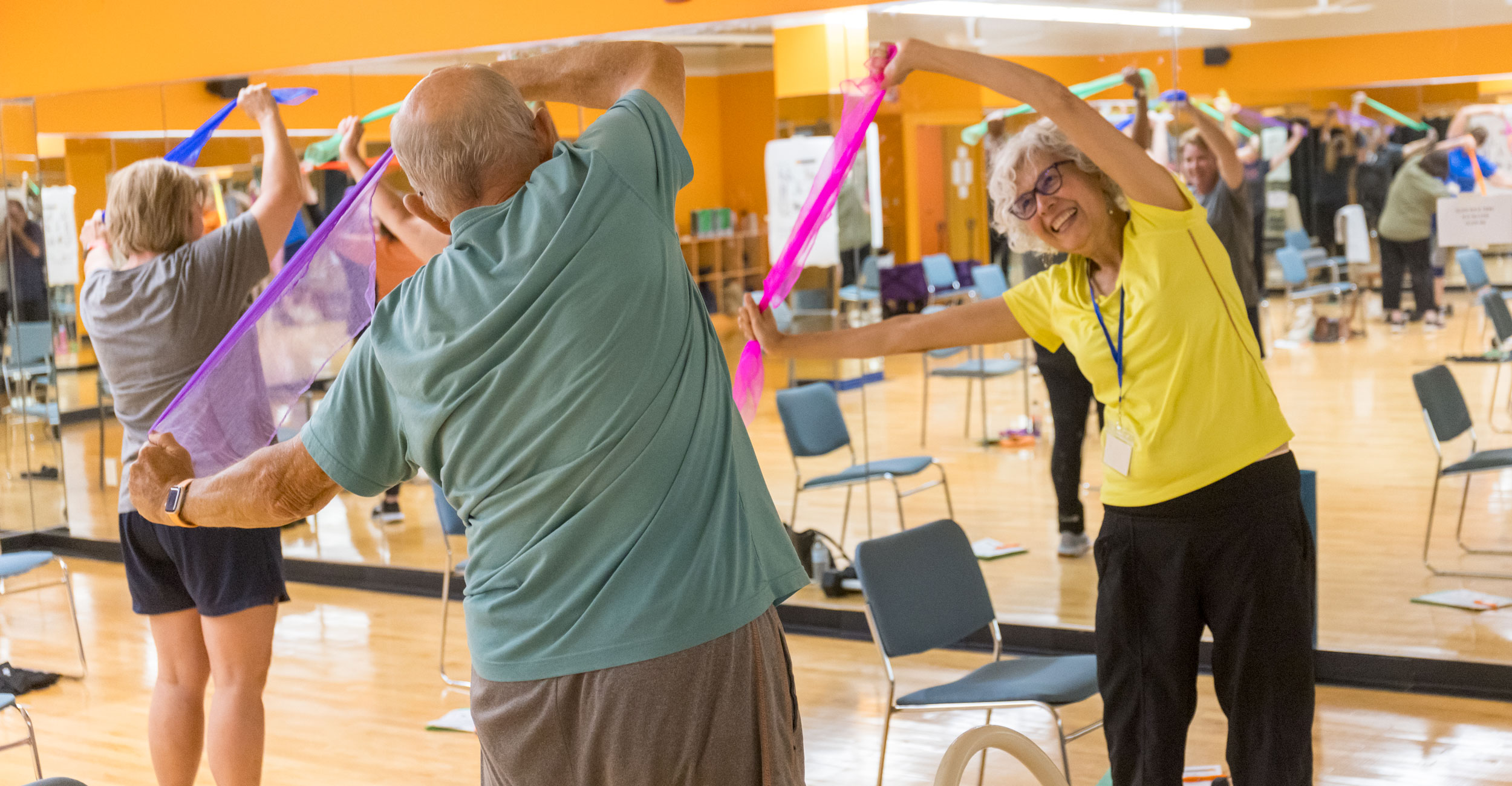
Strengthening rural Oklahoma: HPNRI-supported Extension fitness program empowers older adults
Tuesday, December 17, 2024
Media Contact: Sydney Trainor | Communications and Media Relations Specialist | 405-744-9782 | sydney.trainor@okstate.edu
As people age, they face natural declines in muscle strength and bone density, increasing the risk of falls, loss of independence and reduced quality of life. But research shows that just eight weeks of resistance training can reverse these effects, empowering older adults to gain strength, build self-confidence and enjoy a better quality of life.
To implement research-based solutions, Dr. Steve Ball at the University of Missouri developed Stay Strong, Stay Healthy, which was brought to Oklahoma State University by Dr. Bree Baker, assistant professor and director in the School of Kinesiology, Applied Health and Recreation.
Through the eight-week program, participants build strength, flexibility and balance to help them maintain independence.
Baker said the rewarding part of this program is when participants can pick up their grandkids for the first time or those who once came to class with a walker start using a cane three weeks later and at the end of the program don’t use anything to help walk.
“It's not just all the physical benefits,” Baker said. “We've been interviewing participants about why they love the program, and they talk about the social benefits. It’s so important to get out of the house and connect with others.”
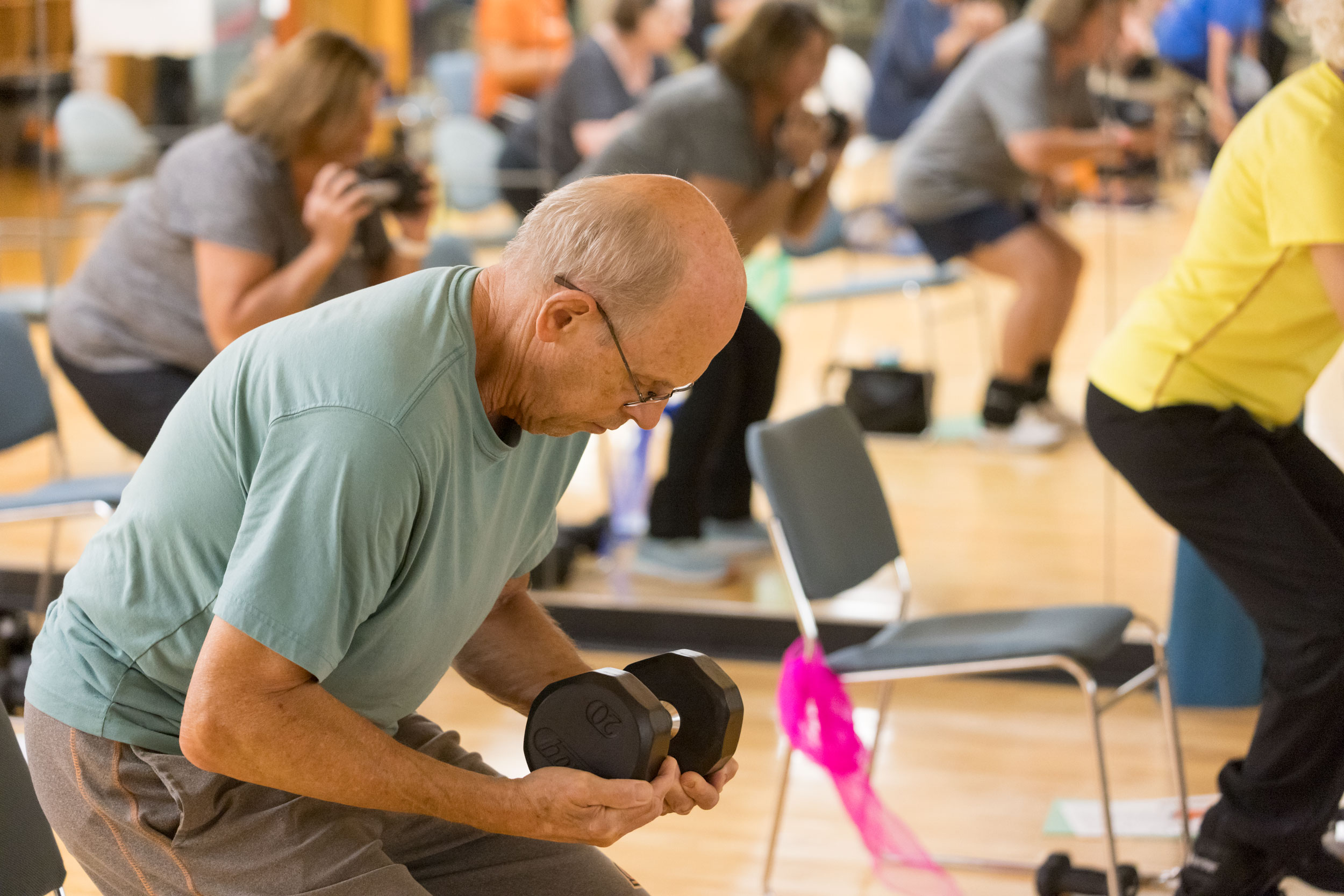

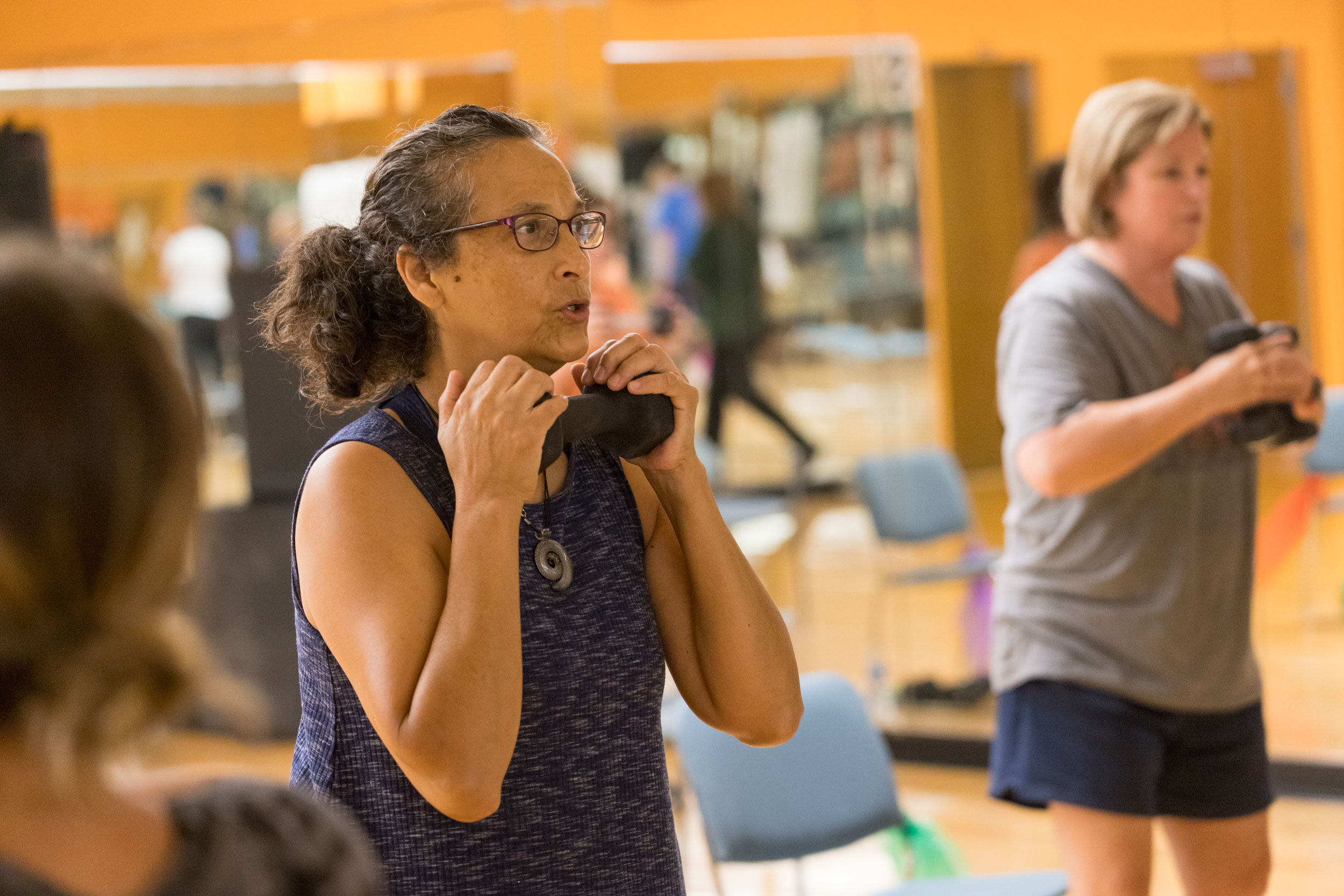
One set of weights for the program costs between $2,500 and $3,000 — a major challenge for Oklahoma’s rural counties, where funding is scarce. Currently, only a handful of counties have weights, forcing educators to transport equipment between locations. This logistical challenge often means programs can only be offered once a year in some areas.
“Access to health care in general is a major issue in our rural communities,” Baker said. “We know that exercise benefits every single aspect of health, cognitive decline, physical decline, all those things, and the program has been shown to improve all those things: sleep and balance, fall risk, muscle strength, muscle flexibility. We just are having a hard time getting it to the communities who need it most right now.”
To address these challenges, Baker partnered with the OSU Human Performance and Nutrition Research Institute. Together, they have secured funding through seed grants to provide weights for two rural counties, enabling them to launch the program.
"By providing resources like these weight sets, we’re helping to expand Baker’s impact and ensure that more individuals across the state can benefit from her efforts and expertise,” HPNRI Associate Director Melenda Knight said.
HPNRI, a component of The Innovation Foundation at OSU, has been instrumental in helping get this program off the ground in areas where it’s desperately needed and working on innovative solutions to keep expanding, Baker said.
"Dr. Baker’s dedication to improving the health and well-being of Oklahomans through the Stay Strong Stay Healthy Program is truly inspiring,” said Lance Walker, HPNRI Rick and Gail Muncrief executive director. “At HPNRI, we are honored to support and amplify the incredible work she has already been doing.”
The two sets of weights HPNRI helped purchase are being used in western Oklahoma as part of a research study on the benefits of SSSH when offered in a virtual format.
"Dr. Baker's work exemplifies the seamless integration of research and community impact,” said Dr. Ali Boolani, HPNRI associate director of research and strategic initiatives. “Her collaboration with HPNRI on innovative research projects not only enhances our understanding of health and performance but also ensures that this knowledge directly benefits the people of Oklahoma.”
Participants across Oklahoma have seen life-changing results. Some who started the program with walkers transitioned to canes or no assistance by the end of the eight weeks. Others have been able to pick up grandchildren or engage in hobbies they thought they’d lost forever.
“I’m always looking for partners to help our rural communities who want to offer SSSH
but can't afford the weight sets. With more equipment, we can ensure that older adults
in every corner of the state have access to this life-changing program."
Garfield County Extension Educator Joy Rhodes has completed the program three times with approximately 15 participants per class
“I do have one person who uses a walker, and she goes to a lot of trouble to come to these. She has the bus come pick her up and then take her back home,” Rhodes said. “I have seen amazing progress in what she's done.”
In Choctaw and Pushmataha counties, Extension Educator Kris Bailey has offered the program despite limited resources.
Bailey has offered the class once in each county since she has to borrow equipment and transport it between counties.
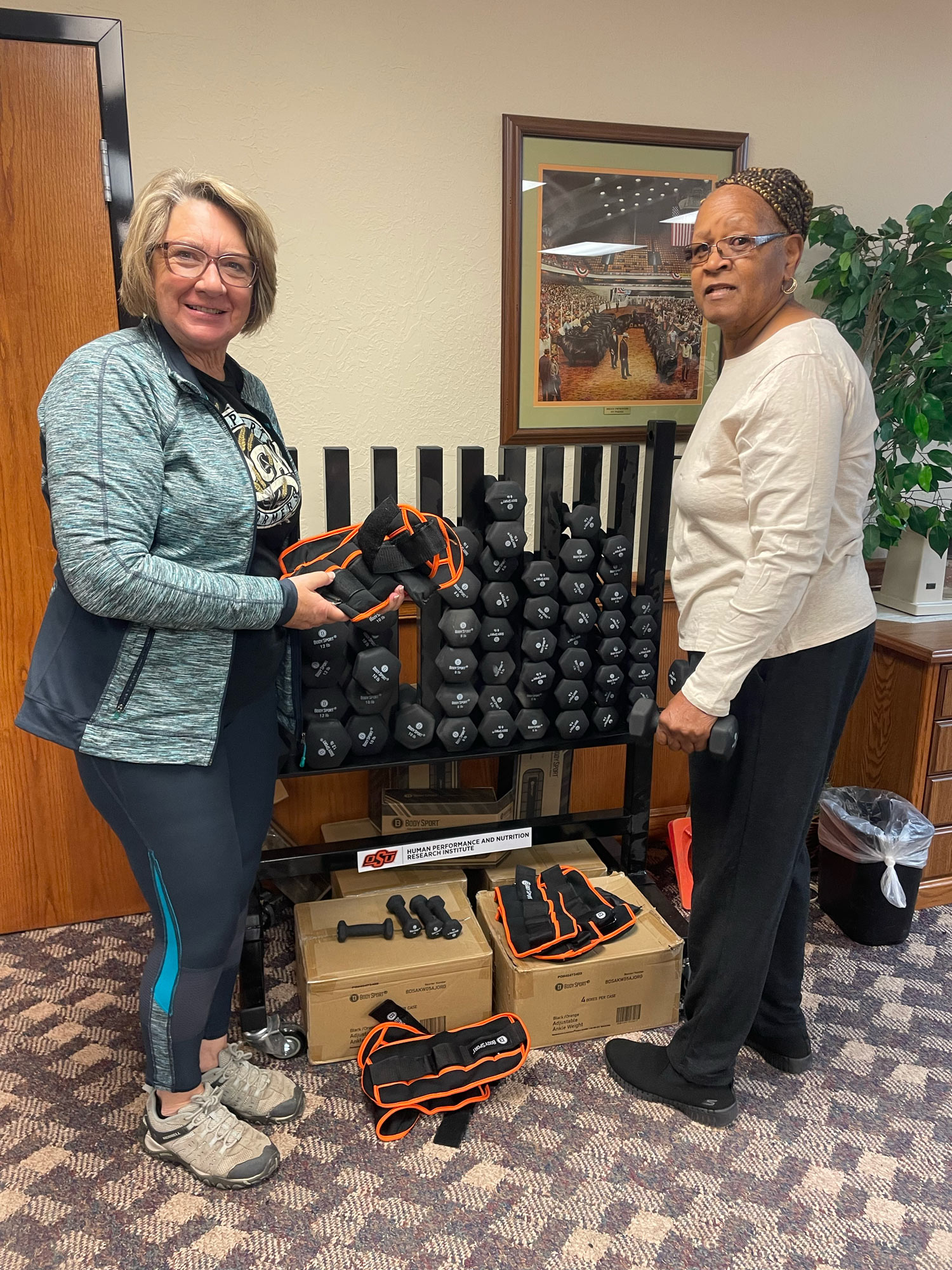
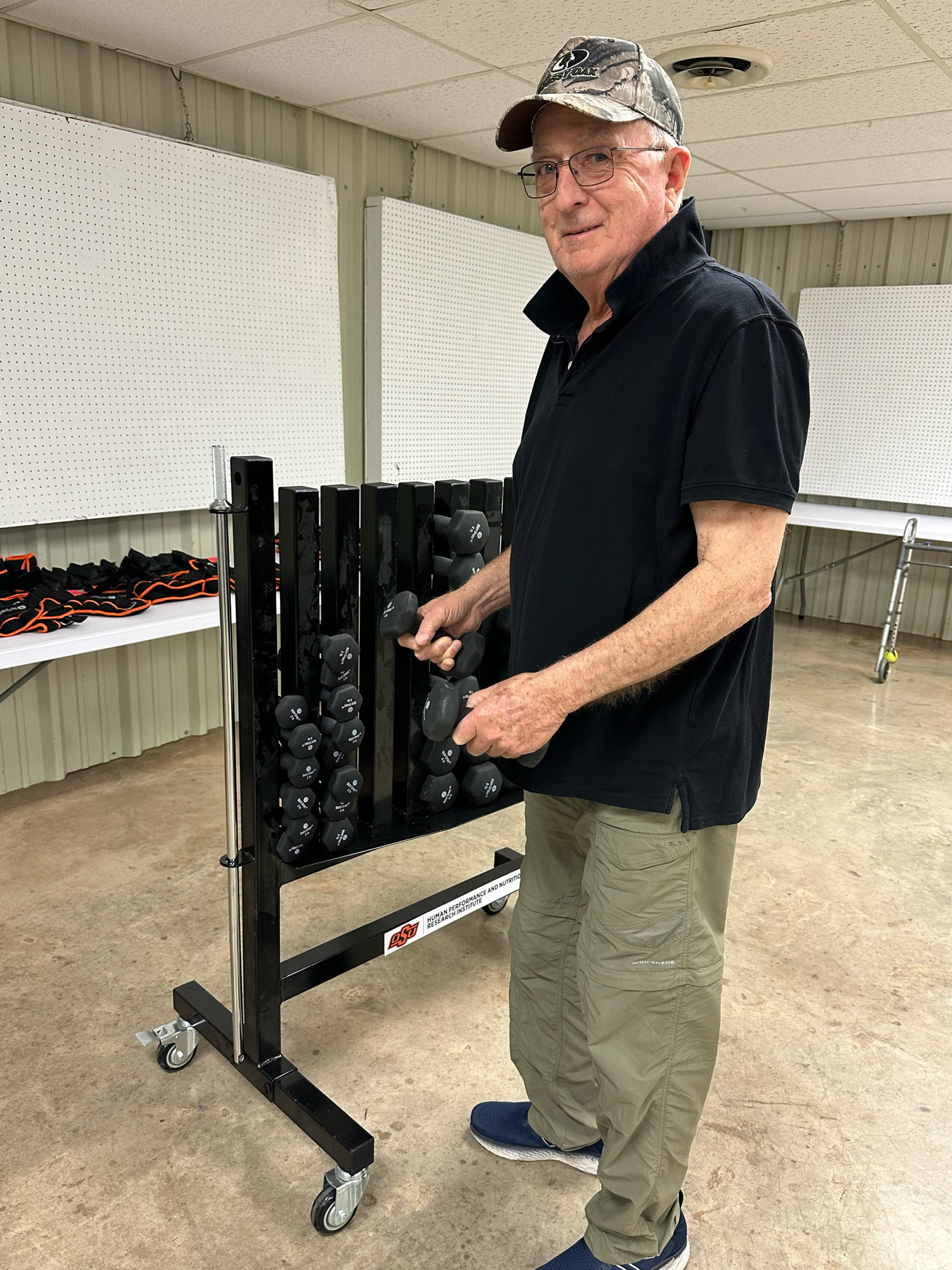
"They all told me throughout the program that they felt better that they noticed a difference in just being able to get up out of a chair,” Bailey said. “I think one of the main things that they noticed the difference with some of them with flexibility.”
To expand the program, Baker welcomes support from local businesses, organizations and individuals. Businesses can sponsor weight sets in exchange for brand visibility, and donations of any size can help make a difference.
“I’m always looking for partners to help our rural communities who want to offer SSSH but can't afford the weight sets,” Baker said. “With more equipment, we can ensure that older adults in every corner of the state have access to this life-changing program.”
